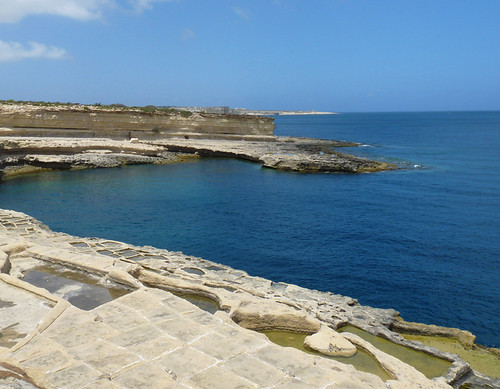I feel the need to mention that in no way do I think that my versions of recipes are the "only" way to make them. Feel free to adapt them to your own tastes, this is definitely something I do to pretty much everything I make.
If you go into your average Maltese woman's house, she will have her recipe that has been passed down from generation to generation, and it is "their" and also "Maltese" tradition, no matter how they might differ. I have tasted so many absolutely delicious but completely different versions of the "same" thing. I cannot discount any as not being the true traditional ones, however I am very adamant that some things should be a certain way (at least basic ingredients, and some specific methods) if they are to be called traditional.
I also think the British Colonialists have lots to answer for when it comes to the raping of our diet. But I'll go into that one another day ;)
I will try, where I can, to mention what I know to be "the way" to do something (as the Maltese speak), and "my way" of doing it.
There is one basic thing that I will always fight for, which is to take the slow route when cooking. If you try and avoid "ready made" things, the food will taste better. Take care when choosing your ingredients, especially fresh produce, try and stick to seasonal foods, and try and buy local. In all seriousness, shopping is just as, if not MORE important to me than a good recipe.
The most basic ingredients are of the utmost importance.
Extra virgin olive oil. Dad gets ours from Puglia, which is on the southern east coast of Italy. You can find plenty of Extra virgin olive oils for cooking at the supermarket, however do not skimp on the good stuff when using it raw in salads, and to dress food/dip bread into. It can vary from a cloudy green to a bright greenish yellow, and when you taste it, you'll see how it makes ALL the difference. Maltese olive oil is delicious, very fruity and "fresh" tasting. Very green. Excellent with tomatoes and bread. There's plenty of excellent olive oils available from anywhere, Farmer's markets in Australia have been great, as well as speciality shops.
Pasta - I always buy Italian. Full stop. I use whole-wheat (integrale) and white, although when I have guests I tend to use white as it's easier to get it to "al dente" without overcooking. Wholemeal can go from underdone to overdone in 30 seconds, it's a bloody nightmare when making more 500g of raw pasta at the same time.
Fruit and Veg: I literally pick up each one and look at them, I choose them with love. Smelling them is a great way of telling how good they will taste, don't worry if people look at you weird, it's their problem, and your food will taste better than theirs anyway! :P
When in Malta, use Kunserva as your tomato paste. It's the best stuff EVER. When overseas, try and find a triple concentrate tomato paste. believe it or not, the best one I found in Australia is the "leggo's organic" brand, I just add a good pinch of salt and sugar to it before using it, and "fry" it a little in some olive oil before I add tomatoes to the recipe. It's way better than the Carmelina Italian crap. I find Italian tomato pastes too bitter and dark. Maltese Kunserva is sun-dried the same way they do tomatoes, liberally sprinkled with salt, and left on the roof to dry under some muslin in the sun, and then brought in at night.
Herbs - I always try and use fresh, however some (like rosemary, thyme, Italian herb mixes, oregano) are also good dried. Mint is easy to dry yourself when you have plenty, simply place in a paper bag until dry, then throw in a jar. In my opinion there is no substitute for fresh basil or parsley. Parsley and Coriander keep EXTREMELY well in the freezer, and you can just crumble it straight from there into your cooking.
Pepper and Salt - Freshly ground black pepper is awesome. I implore people to only use sea salt as mined salt is.. well, mined out of the ground. Naturally evaporated Sea salt is one of the most natural things, as us Maltese should know :) Don't be afraid to add salt to your cooking, as you actually end up using less than if you add it at table (as ALL the food absorbs the flavour, rather than just having crystals of the stuff around the food).
NB: when cooking meat in the pan/bbq - add it just before you throw it into the pan (and then add it on the other side just as you're about to turn it over).
Most of our traditional recipes have originated from necessity, no matter where we come from. It is the simple and basic need to feed ourselves with what we have available. It's totally understandable that there would be differences in the recipes, especially seeing as many of them were never written down, and were simply passed on in the kitchen from parent to child (mostly mother to daughter). Many of the recipes I'll be posting have been learnt just in that way, watching and learning from Mum, Dad, Nanna and my Uncle Chris mostly. Some of them are things I've learnt from friends, all of them don't turn out exactly the same way when i make them again. Half of them I try to reproduce, and end up making something different (sometimes better, sometimes worse, sometimes just as good but completely different).
I invite you to adapt "my" recipes, and to let me know what you did, I love to hear these things :)


No comments:
Post a Comment